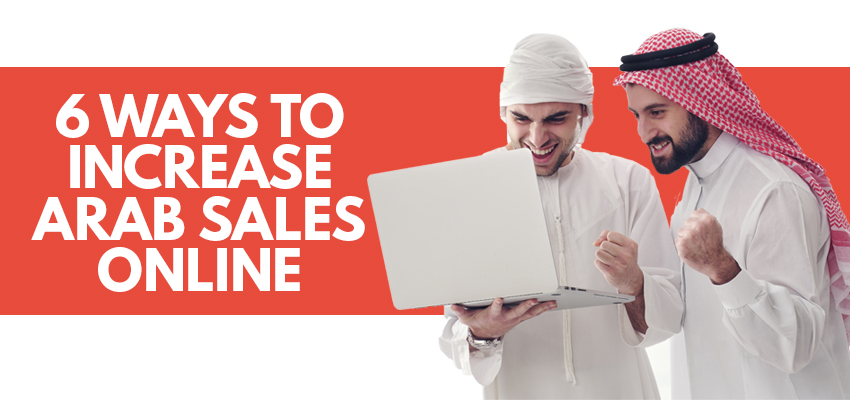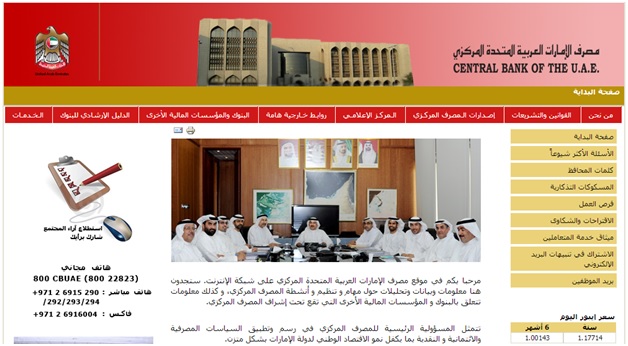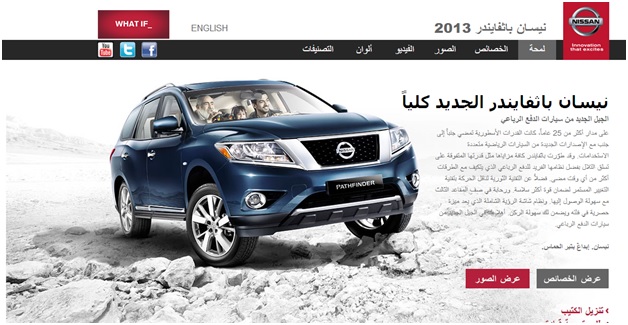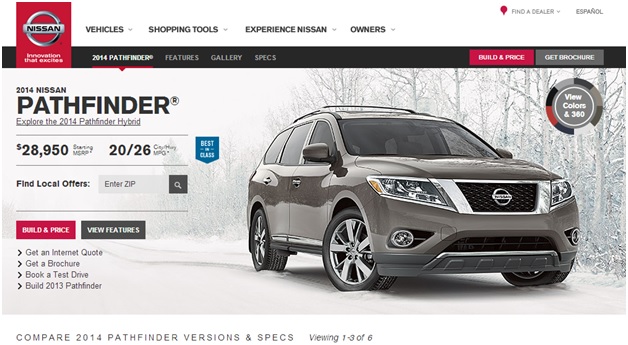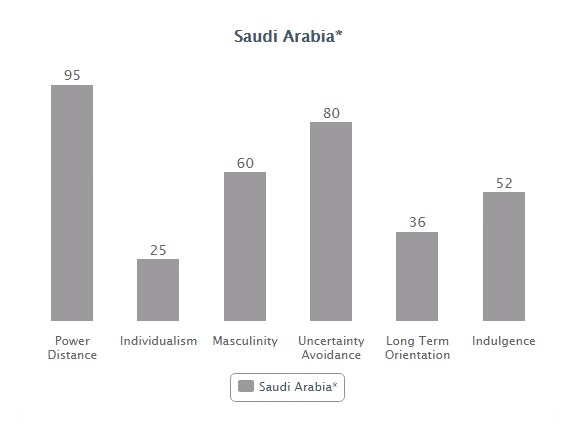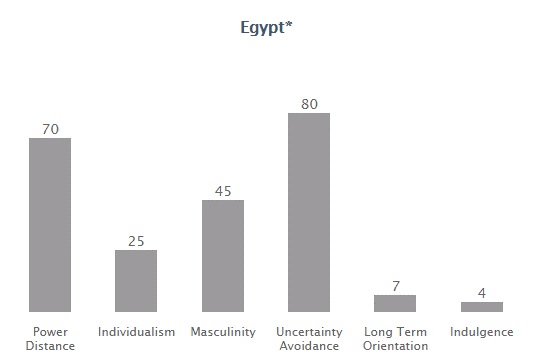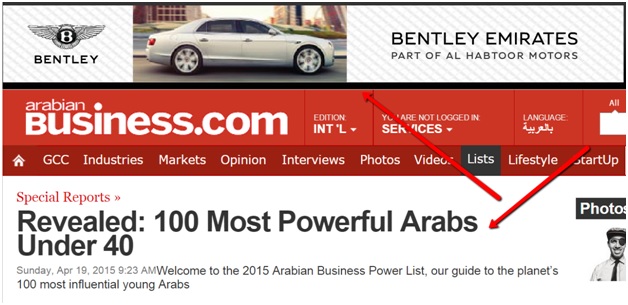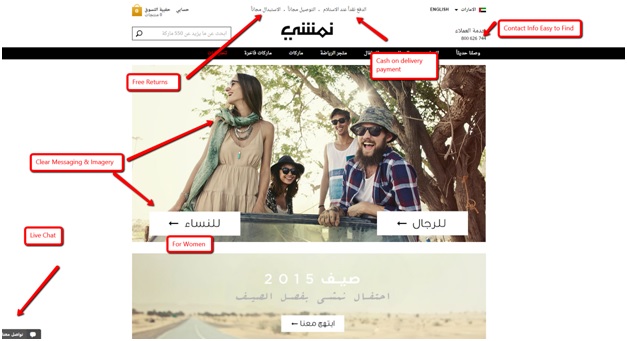Any market entry plan should include strategy and tactics for reaching your target audience effectively within that region. How a product is marketed in some regions of the world may be very different from how it should be marketed in the Middle East. In this post we will examine some of the unique ways you should be marketing and selling your products to Arabs.
1. Think Tribe & Family with Arabs
Arabs are considered to be collectivists. Collectivists show a high degree of loyalty commitment to their group, family, and tribes. They are committed to their extended family unit and they feel a strong responsibility as a representative of their group. The group as a whole and individually takes responsibility for each member of the tribe.
Marketing Application
When optimizing and designing your website to target collectivist cultures like Arabs you should apply these tactics
- Focus on the community or family in the imagery of the website.
- Honor and respect tradition, status, and cultural maxims.
- Honor those in authority and the elderly
Below are some examples of these principles.
See the clear difference below between how Nissan markets their Pathfinder in Saudi Arabia compared to how they market the same vehicle in the US. The Saudi picture portrays the family in the car, the grandfather honored in the passenger seat, and a clear story about the car. The US pictures the empty Pathfinder and the plain features and facts about the SUV.
2. Relationships are more important than results
Though results are still important in Arab world, nothing gets done without forming a relationship first. Arabs believe that a lot can be revealed about a person by sitting down to have a cup of tea together. In the online world sitting down to have a cup of tea with a customer probably isn’t possible but there are several ways that you can build a strong relationship with your customer without actually meeting with them in person.
Email Marketing
Email allows you to have several touch points with your Arab prospects, customers and clients. When you get an Arab on your email list and start to drip feed them valuable information and content you build trust over time as they see you aren’t just about selling your services but you also give away a ton of value for free.
Social Media
There’s a reason social media marketing is so popular in the Middle East. Social media gives companies the opportunity to communicate with their Arab audience virtually. One-way communication may be enough at times, but to get the best results companies should be responsive to social media users that reach out to them.
Webinars
If you have a product or service that needs detailed explanation webinars can be a way to connect with you audience in a special way. Webinars can often be the next best thing to giving a prospective customer a one to one meeting. Webinars also give that personal touch but can be done with hundreds of people at a time.
Live chat and customer support
Many Arabs are new to making purchases online. They are used to shopping in malls and souks where they can get their questions answered immediately by a store employee or owner. In light of this, its important to help Arabs make the transition to buying online by adding a relational touch to your website by including live chat functionality. This lets them know there’s real people behind that website they are using.
3. Arabic is powerful
In countries like Saudi Arabia, Arabic is used for nearly everything, making it so a large portion of the population does not speak English. According to one study, “87% of consumers who can’t read English don’t buy products or services at English-language websites.”
To add to this even if your Arab audience speaks some English they still may be much less likely to purchase products from you. 55% of respondents in a language survey stated that they only buy from websites where information is clearly presented in their own language.
Starbucks has gained impressive market share in the Middle East in part because they understand the power of language.
4. Realize that Arabs aren’t all the same
Assuming that all Arabs are the same is a mistake. Even when we look at Hofstede’s country culture comparison based on several cultural factors we find that there are significant differences between Arab nations. Saudis may rank relatively high in the indulgence category while Egyptian are extremely low in that category.
The largest brands in the world understand these difference and have localized messaging and advertising in each country in the Arab world.
Small brands shouldn’t be afraid
This factor shouldn’t scare away small brands though, there is much overlap in the culture across all Arab nations so you can have some success by having the same messaging across the whole region. For example you see above that KSA and Egypt have the same exact level of individualism and uncertainty avoidance. Just be aware that as you grow there may be additional opportunities you are missing by not tailoring your message to specific countries in the region.
5. Sell status with luxury
We’ve found that luxury brands do very well with Arabs, especially in the GCC. We’ve seen that even in the midst of obstacles to purchases, websites that sell luxury goods can get very large orders from the region. In fact one trait that is common among luxury websites that sell goods and services in the region is abnormally high conversion rates.
Arabs come from a society that is focused on honor and shame. Great amounts of time are spent trying to earn or maintain honor while avoiding shame. Luxury products are one way Arabs can attain a form of honor and respect very quickly.
How should companies respond to this trait in Arabs when marketing online?
1. If you have a have luxury products in your offering focus on those first. If you don’t, consider how you might make some of your products to appear more luxurious. Could you create a limited edition product that comes in fancy packaging? Often the difference between a basic product and the limited edition can be small improvements that add little additional cost but can significantly increase your profit margins.
2. Include imagery of the product in a setting that makes it appear more expensive.
3. Spend additional time on creating compelling copy (in Arabic & English) about the features and benefits of the product. If you can craft a storyline about how the product impressed friends or family of the owner, all the better.
4. Market your status symbol next to other places of status. Bentley does a good job of this by sponsoring this post on the most influential Arabs under 40. Hey if you can’t be one of the most influential Arabs under 40, at least you can try to get some status with a Bentley.
6. Avoid Uncertainty
Most Arab nations rank very high in the cultural category of uncertainty avoidance. As a result of this extreme importance should be given to making things very clear and easy to use for your audience. Here are eight factors to consider to consider reduce uncertainty on your website.
1. Make language clear and straight to the point.
2. Avoid imagery that could confuse the end user. Focused imagery promotes the main goal of the page.
3. Make your check out process easy to follow.
4. If possible include pricing in your visitor’s local currency.
5. Make information about shipping and policies easy to find.
6. Include trust symbols continuously through the site like secure site verifications.
7. Include a money back guarantee or a free returns policy.
8. Include a live chat feature to clear up any additional uncertainty they may have.
Once a website visitor moves from uncertain to secure and comfortable with your website you may find that they are extremely loyal and come back regularly to make purchases.
In conclusion, understand that many of the tactics listed above can significantly increase your sales among Arabs when they are implemented correctly. Please understand that many of the demographic stereotypes in this post are generalities and will not apply in every single circumstance. With that said using this general understanding of Arab culture can help you make significant strides with your online marketing efforts in the Arab world.
Jordan Boshers
Jordan Boshers is the Chief Digital Strategist at IstiZada, a digital agency that helps companies market to Arabs. He has 12+ years of experience running successful digital marketing campaigns in the Arab world. His insights into Arabic SEO helped him grow previously unknown websites to dominate Arabic niches on Google including growing one site from 0 to more than 2.5 million users monthly. Jordan has consulted for hundreds of companies including helping corporations like Amazon, Berlitz, and Exxon Mobil with their Arabic digital marketing. Learn more here or on LinkedIn.
View all posts by Jordan Boshers